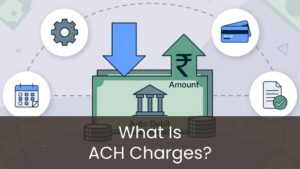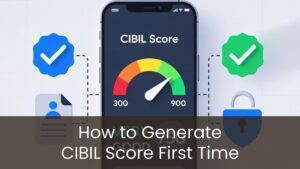Gold loans are one of the quickest and most convenient ways to access funds in times of financial need. Whether it’s for emergency medical expenses, business expansion, or personal commitments, pledging your gold can help you get instant liquidity without selling your precious assets. However, while gold loans are simple and accessible, they also come with certain risks and responsibilities. To borrow smartly and protect your valuables, it’s essential to avoid gold loan mistakes that could lead to higher costs or even loss of your pledged gold.
To help you make the most of your loan, here are the most common mistakes to avoid when taking a gold loan.
Over Borrowing: A Common Gold Loan Mistake to Avoid
One of the biggest mistakes borrowers make is taking a loan amount larger than what they can comfortably repay. Since gold loans are secured against your gold jewelry or coins, lenders often provide quick approvals, making it tempting to borrow more than necessary. However, over-borrowing can lead to financial stress, missed EMIs, and ultimately, the risk of losing your gold to the lender if you default.
Tip:
Evaluate your repayment capacity before applying. Use online gold loan calculators to estimate EMIs and ensure they fit comfortably within your monthly budget. Borrow only what you truly need.
Ignoring Hidden Charges and Processing Fees
Many borrowers focus only on the interest rate and overlook additional charges like processing fees, valuation charges, late payment penalties, and foreclosure charges. These hidden costs can significantly increase your overall repayment amount.
Tip:
Before signing any agreement, carefully read the loan terms and ask the lender to explain all applicable charges. Compare different lenders not just by interest rates but by the total cost of borrowing.
Not Comparing Interest Rates Across Lenders
Interest rates on gold loans can vary widely between banks, non-banking financial companies (NBFCs), and fintech lenders. Some institutions may offer lower rates for short term loans, while others may provide higher loan to value (LTV) ratios. Borrowers who accept the first offer they receive often end up paying higher interest over time.
Tip:
Research and compare offers from at least three lenders before deciding. Even a small difference in interest rates can save you thousands of rupees over the loan tenure.
Neglecting Repayment Discipline and Due Dates
Late payments or skipped EMIs can result in hefty penalties, increased interest, and a damaged credit score. In severe cases, lenders may auction the pledged gold to recover their dues. Many borrowers overlook the importance of timely payments, which leads to penalties and higher interest costs.
To understand smart repayment methods, check out our guide on how to repay your gold loan faster and save interest.
Tip:
Opt for repayment options that suit your financial situation monthly EMIs, bullet repayment, or interest only payments. Always set reminders for due dates and maintain repayment discipline.
Failing to Understand the Loan-to-Value (LTV) Ratio
The Reserve Bank of India (RBI) caps the maximum LTV ratio for gold loans at 75%. This means you can only borrow up to 75% of your gold’s market value. Some lenders may offer a lower LTV, which reduces your risk but may also limit your loan amount. Borrowers who don’t understand this ratio may feel short changed or misled.
Tip:
Understand how the LTV ratio works and get your gold valued by a trusted lender. If a lender offers more than the permissible LTV, it may be a red flag for unethical practices.
Not Checking the Credibility of the Lender
With the rise of digital lending platforms, many borrowers fall prey to unauthorized or fraudulent lenders offering “zero interest” or “instant approval” gold loans. Such schemes can be risky and may lead to loss of gold or personal data misuse.
Tip:
Always verify that the lender is registered with the RBI or other regulatory authorities. Read reviews, check the company’s website, and ensure that the loan process is transparent and secure.
Ignoring Prepayment and Foreclosure Conditions
Some lenders impose prepayment or foreclosure penalties if you decide to close your loan before the tenure ends. Borrowers often overlook these terms and end up paying unnecessary charges when trying to save on interest.
Tip:
Check if your lender offers zero prepayment or low foreclosure charges. Choosing flexible repayment terms gives you better control over your loan.
Using All Your Gold Assets as Collateral
It might be tempting to pledge all your gold to get a higher loan amount, but it’s wise to keep some assets unpledged for emergencies. If you pledge all your gold and face financial trouble later, you may have no assets left to leverage.
Tip:
Only pledge as much gold as necessary. Keep some reserves for future needs.
Frequently Asked Questions
The loan amount depends on the Loan to Value (LTV) ratio, which is capped at 75% of the gold’s market value as per RBI guidelines. The exact amount may vary by lender.
Yes, if you choose a reputed and regulated lender, your gold is stored securely in insured vaults. Always ensure that you get a receipt and loan certificate confirming the details of your pledged gold.
If you fail to repay within the agreed period, the lender can auction your pledged gold to recover the dues. You may also face penalties and a drop in your credit score.
Gold loans are usually cheaper and faster to obtain since they are secured. However, if you don’t have gold or can’t risk losing it, a personal loan may be more suitable.








1 thought on “Mistakes to Avoid When Taking a Gold Loan”
I see something genuinely interesting about your blog so I saved to fav.